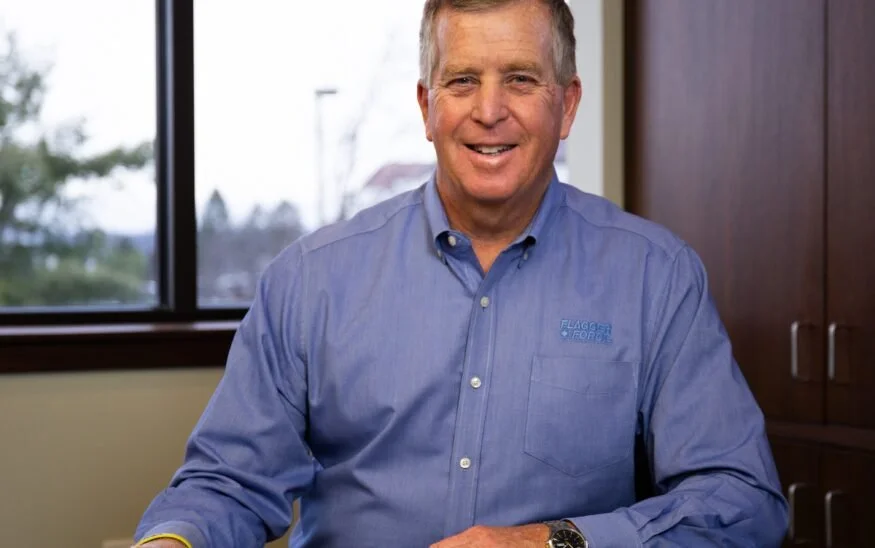
In the Media
At RBIJ we lift your voice. We recognize that when businesses speak, stakeholders listen. In addition to publishing in our own name, RBIJ works with businesses to amplify their impact through strategic communications. Take a look at some of our recent media.
Flagger Force president/CEO speaking at national summit
Central Penn Business Journal: Mike Doner, president and CEO of Workforce & Justice Alliance member Flagger Force, is speaking at the Justice Summit in Park City, UT.
Celebrating the winners of Ragan’s CSR Awards: See the list
Ragan: Ragan is proud to announce the winners of the 2025 CSR Awards, honoring the communicators, teams and organizations making a meaningful difference through purpose-driven work.
Helping people find work after prison could be a boon to Georgia’s economy
The Atlanta Journal-Constitution: Mark Haynes was incarcerated for four years. But he put that time to good use, earning multiple certifications related to dog grooming and training and for veterinary assistance.
Outdated Laws Are Holding Back Our Workforce
Business News Wales: When I was 17, I made a serious mistake and ended up serving six months in prison. As soon I got out, I vowed to myself that I would never go back.
Business Leaders Unite for Inclusive Hiring at Summit
Investors Hangout: Over 150 executives, policy leaders, and justice advocates convened at the annual summit organized by the Responsible Business Initiative for Justice (RBIJ) to tackle the pivotal workforce challenges of today. In a climate marked by evolving labor demands, these leaders are pushing for justice-driven solutions that not only help individuals but enhance organizational success.
Oklahoma Historic Fee Elimination Signed into Law
State of Oklahoma House of Representatives: Two measures reforming Oklahoma's fines and fees systems have been signed into law.
Alabama Bipartisan Bill Breaking Down Workforce Barriers Becomes Law
Gumptown Magazine: Governor Kay Ivey signed SB138 into law this week. Sponsored by Representative Parker Moore and Senator Rodger Smitherman, the bill breaks down workforce barriers for non-violent formerly incarcerated Alabamians.
Alabama Businesses Need Skilled Talent, Commonsense Occupational Licensing Reform Will Help
Strive Birmingham: Alabama remains a top-ranked state for business, strengthened by our competitive workforce training programs, business-friendly policies, and vital public-private partnerships.
Ash: Amid labor shortages, ‘Clean Slate’ is good for Mass. businesses, communities
Boston Business Journal: To strengthen our workforce and economy, it’s time for our state to embrace ‘Clean Slate’ legislation.
Second Chance Hiring is a Win for D.C.’s Black Businesses — Learn How to Get Started
The Washington Informer: Every year, thousands of people return home from prison to Washington, D.C., or are released from our local jail, eager to get jobs, reconnect with their communities and rebuild their lives.
Opinion | Reforms to occupational licensing offer solutions to Alabama’s labor shortages
Alabama Political Reporter: Our business-friendly policies, competitive workforce training programs, and vital public-private partnerships continue to fuel our success.
Debt-related license suspensions put the brakes on employment
FedCommunities: Debt-related suspensions also keep people out of the workforce. Many jobs require a driver’s license. And driving may be the only way for some to get to work.
The Hustler Files: From a Gym to a Community of Equals
The Hustler Files: Guests Caz Walcott, Director of Inclusive Hiring at the Responsible Business Initiative for Justice (RBIJ), and Jon Feinman, Founder of InnerCity Weightlifting share the transformative power of inclusive hiring practices.
VIEWPOINT: Amid severe labor shortages, Delaware businesses must tap into our hidden workforce
Delaware Business Times: Too many talented job seekers remain on the sidelines of our economy — and often not by choice, but due to gaps in opportunity. Although the U.S. economy generates tens of thousands of new jobs each month, there are simply not enough available workers to fill them.
PRESS RELEASE: Advocates Applaud Legislature and Governor DeWine for Reducing Debt-Related Driver’s License Suspensions with Passage of HB 29
“Thanks to the leadership of the legislature, advocates, and Governor DeWine, House Bill 29 removes these unnecessary barriers to employment and hiring — a significant win for business and communities,” said RBIJ CEO Maha Jweied.
RBIJ Announces Policy Recommendations to the Trump-Vance Administration
As President-elect Donald J. Trump prepares to assume office in the new year, we hope his administration will consider the many opportunities that exist to advance greater fairness and justice across the country in partnership with the business community.
RBIJ’s Ken Oliver: 'The biggest misconception of people with convictions is they are untrustworthy’
People Management: The stigma surrounding hiring individuals with criminal records often feels insurmountable, but Ken Oliver, a member of the Responsible Business Initiative for Justice (RBIJ), believes the root lies in misunderstanding.
One year later, Pretrial Fairness Act has positive effects for our communities
Lawndale News: The President and CEO of North Lawndale Employment Network (NLEN) shares how Illinois’ Pretrial Fairness Act has positively impacted their business.
JPMorgan Chase pilots equitable hiring program
Delaware Business Times: JPMorgan Chase & Co. and the Responsible Business Initiative for Justice (RBIJ) will be launching an equitable hiring initiative to shore up Wilmington’s workforce by working with 10 employers to train them on updated screening processes to help reduce barriers to employment.



















